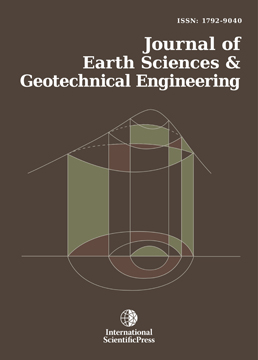Journal of Earth Sciences and Geotechnical Engineering
Energy converting structures in the Southern Brazilian Shelf: Energy conversion and its influence on the hydrodynamic and morphodynamic processes
-
 [ Download ]
[ Download ]
- Times downloaded: 11467
-
Abstract
This study is a preliminary investigation into the influence of the installation of energy converters in the Southern Brazilian Shelf (SBS) and possible modifications in the natural hydrodynamic and morphodynamic processes. The study is based on the application of a three-dimensional numerical model to simulate hydrodynamic and morphodynamic processes. The energy converting structures are represented in specific points along the continental shelf using the turbine concept. The results indicate that coastal currents could be used for the conversion of electric energy. Mean and maximum values of approximately 3 and 79 MW of electric power, respectively, could be obtained at specific points considering the wind driven circulation as the principal forcing mechanism. Considering a set of 6 turbines (20 m radius), an integrated annual rate of approximately 5 GWyear-1 is estimated for the conversion of electric power. The presence of energy converters removes part of the kinetic energy from the coastal currents, generating divergence and convergence zones in accordance with the dominant direction of the currents. The major consequence for the natural ecosystem during the period simulated is the decrease of the intensity of currents and the increase of the suspended sediment concentration near the site of the converters.
